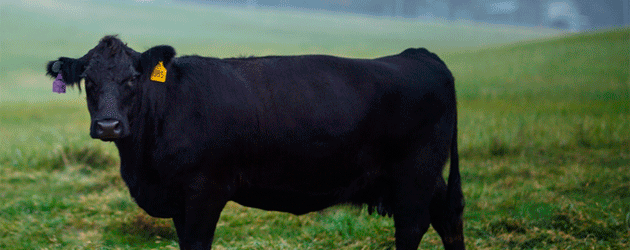
Innovators
Learn about the global economic outlook, livestock cloning companies, and the research institute that began it all.
As demand increases for cloned livestock, some companies have marketed their cloning services (developed by scientific researchers) to a certain group of consumers: farmers. Economic possibilities are driving farmers' choice to clone their livestock. As discussed here, farmers can "copy" their valuable livestock to use as breeding stock, preserving their value. This can "protect the monetary investment in an expensive bovine" (D-0). If a farmer decides to clone even one livestock animal, breeding the single clone could produce multiple offspring, offsetting at least part of the cost of cloning in the first place. With their beneficial genes, clones would ideally produce better quality meat, benefiting both farmers and consumers; farmers economically profit by selling quality meat, and consumers can buy healthier, better food. (D-0) With all the possibilities of cloning, it's no surprise that various companies specialize in providing livestock cloning services to farmers; three notable companies are ViaGen (a division of Trans Ova Genetics), In Vitro Brasil, and Clone International. Click on the company names to go to their websites.
About: ViaGen (part of Trans Ova Genetics) has "developed thousands of healthy, active cloned animals and preserved thousands of genetic samples" (D-1) for clients worldwide, mostly in the U.S. (D-1)

What ViaGen Does: ViaGen Livestock helps farmers decide what animals are at the "top" of their herds and should be preserved to maximize farmers' profits. The company clones livestock in three categories: bovine (cattle), ovine & caprine (goats and sheep), and porcine (pigs). In addition, ViaGen provides equine (horse) and pet cloning services. (D-2)

The Process: First, the tissue of the animals that will be cloned is extracted, cultured "to produce literally millions of cells" (D-3), and stored. In this way, the DNA from the "ideal" livestock animal is preserved for the next step in the process. After that, the process of SCNT (read more about this process here) is utilized to create a genetic clone of the original animal. (D-3)

About: In Vitro Brasil (IVB for short) is a biotechnology company that was created in 2002 primarily to "meet the growing in vitro’s market of bovine embryos production" (D-4).
What IVB Does: In Vitro Brazil provides a variety of services related to animal genetics, including In Vitro Fertilization of various animals, embryo preservation through freezing, embryo transfer, and animal cloning. So far, IVB has cloned 150 animals, including cattle, horses, sheep, and more. (D-5)
Cell Line Storage: Cell Line storage is a specialized process utilized at IVB for animal cloning. It essentially preserves the cells of an animal so that the animal can be cloned at a later time, or for other scientific purposes. A cell line is formed from the tissue of an animal. The tissue is then used to create a cell line, which can either be used to clone immediately or preserved through freezing for the future. (D-5)

About: Clone International is the only Australia- and New Zealand-based company “specialising in the cloning of agricultural animals.” (D-6)
What Clone International Does: Clone International has cloned dairy bulls, Holstein cows, and Brahman cows. For example, they cloned the Holstein bulls DONOR Alpha, DONOR Beta, and NUCLEAR Alpha. This company allows farmers to protect and preserve the ideal genetic traits of “elite animals,” including cattle, sheep, and horses. (D-7)

The Process: Clone International utilizes Nuclear Transfer Technology (originally from the Roslin Institute, discussed below) to clone livestock. Scientists place a tissue cell from the animal that will be cloned into a “‘host’” cell without a nucleus. Then, an embryo that is a genetic clone of the original animal is produced. (D-8)
Of course, these companies specializing in livestock cloning utilize the nuclear transfer technology that makes SCNT (click here to learn more about this process) possible. This technology was first developed at the Roslin Institute

About: The Roslin Institute (part of the University of Edinburgh) is a research center that utilizes science to "tackle some of the most pressing issues in animal health and welfare, their implications for human health and for the role of animals in the food chain." (D-9)

Why Was the Roslin Institute Important?: At the Roslin Institute, Ian Wilmut (pictured to the left) and Keith Campbell used the process of nuclear transfer (specifically SCNT) to create Dolly the sheep, a clone of an adult animal. The process involves fusing together a somatic cell with an unfertilized egg cell (from which a nucleus was removed previously). Then, once the embryo has been partially cultured, it is implanted into a foster mother. This technology revolutionized cloning, as it's currently utilized by animal cloning companies today. Improving its success rate is a major goal for cloning companies, but the basic process is widely used. (D-10)
Other Related Companies
Other companies deal with animal genetics and livestock breeding, services related to livestock cloning. Click on a picture below to visit a company's website and learn more about research and development in the field of animal genetics.
 Zoetis |  Agrimark Genetic Services |  Accelerated Genetics |
|---|---|---|
 Hypor (Hendrix Genetics) |  Sooam Biotech |




